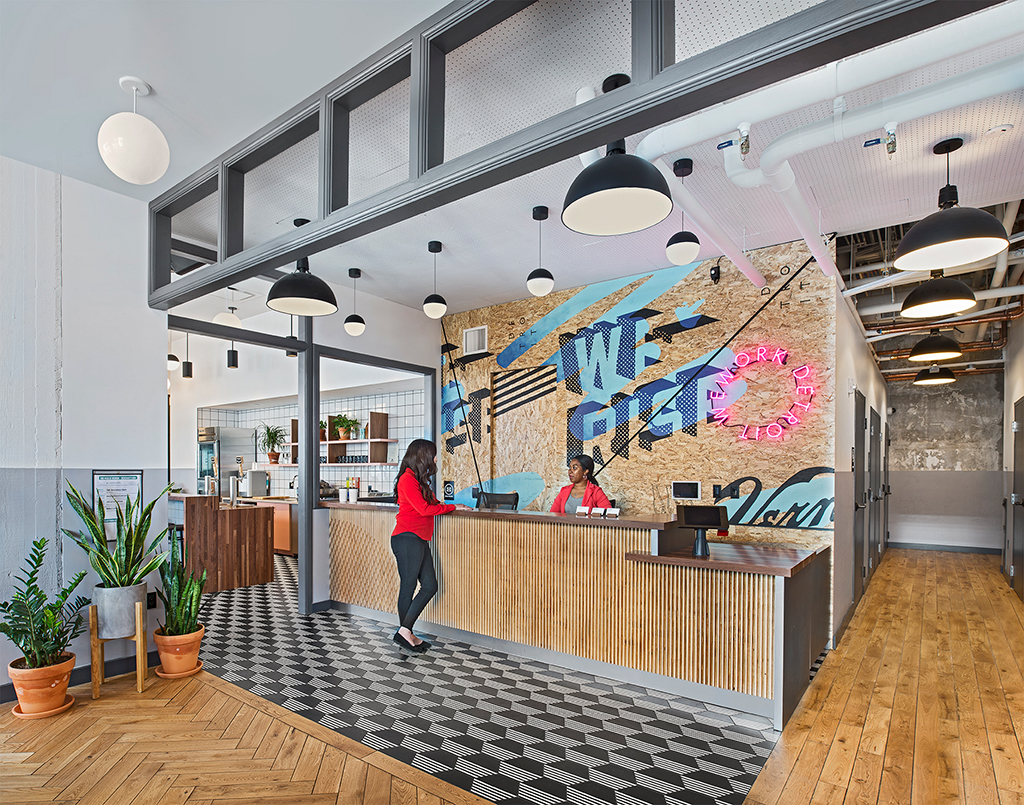For Office Buildings, the Future is Flexible

Chris Kelly, co-founder and vice chairman of flexible office provider Convene, is the first to admit that his industry is in turbulent times. The implosion of WeWork, which has dominated headlines in recent weeks, lurked in the background of his recent talk on the future of coworking at the CoreNet Global Summit in Anaheim, Calif.
Kelly urged his audience to look beyond the breaking news and study the trends that are reshaping the workplace. “Real estate is becoming too complicated for occupiers and landlords to operate by themselves anymore,” he said. “The closest thing to the future office building is a full-service hotel building where the sleeping rooms have been switched out for offices and desks.”
The analogy is fitting for Convene, a New York-based startup that Kelly describes as a hospitality firm, since it derives the large majority of its revenue from conferencing. The company operates 30 flexible office locations and a nearly equal number of meeting and event spaces across the U.S. and London, and earlier this year opened a 125,000-square-foot flagship venue at Manhattan’s 530 Fifth Ave.
Central to Kelly’s vision of flexible real estate is the notion that landlords, tenants and operators need to be working and communicating in tandem to capture efficiencies, rather than having a series of siloed dialogues. “What if we started to imagine a building where the services were integrated, and flexibility was integrated as a forethought instead of an afterthought?”, he asked.
Hotel-Style Amenities
The ideal “flex-enabled building,” as he terms it, offers concierge-style reception areas in place of traditional office lobbies, “which are currently these empty, cavernous spaces that do almost nothing other than showcase a cross-section of Italian marble,” Kelly said. Ground-floor retail, food and beverage amenities can be curated to support the overall building theme, instead of facing outward toward the street.
A meeting and conference center would also form part of the hospitality infrastructure at the base of the building, available to the public, but offered on preferred terms to tenants. Shared workspaces of all shapes and sizes would sit above that, as would traditional leased offices. The hospitality base would allow catering and coffee services to be provided throughout the entire building, as with room service in a hotel, he added.
“From a technology mindset, the operator is thinking about tenants as audience, where you can start to serve them things and do it more conveniently and more cost-effectively because you’re on-premise,” Kelly said.
Wait! Don’t miss out on the latest insights
Sign up for Saschse Construction’s
e-newsletter below!
Featured Topics

